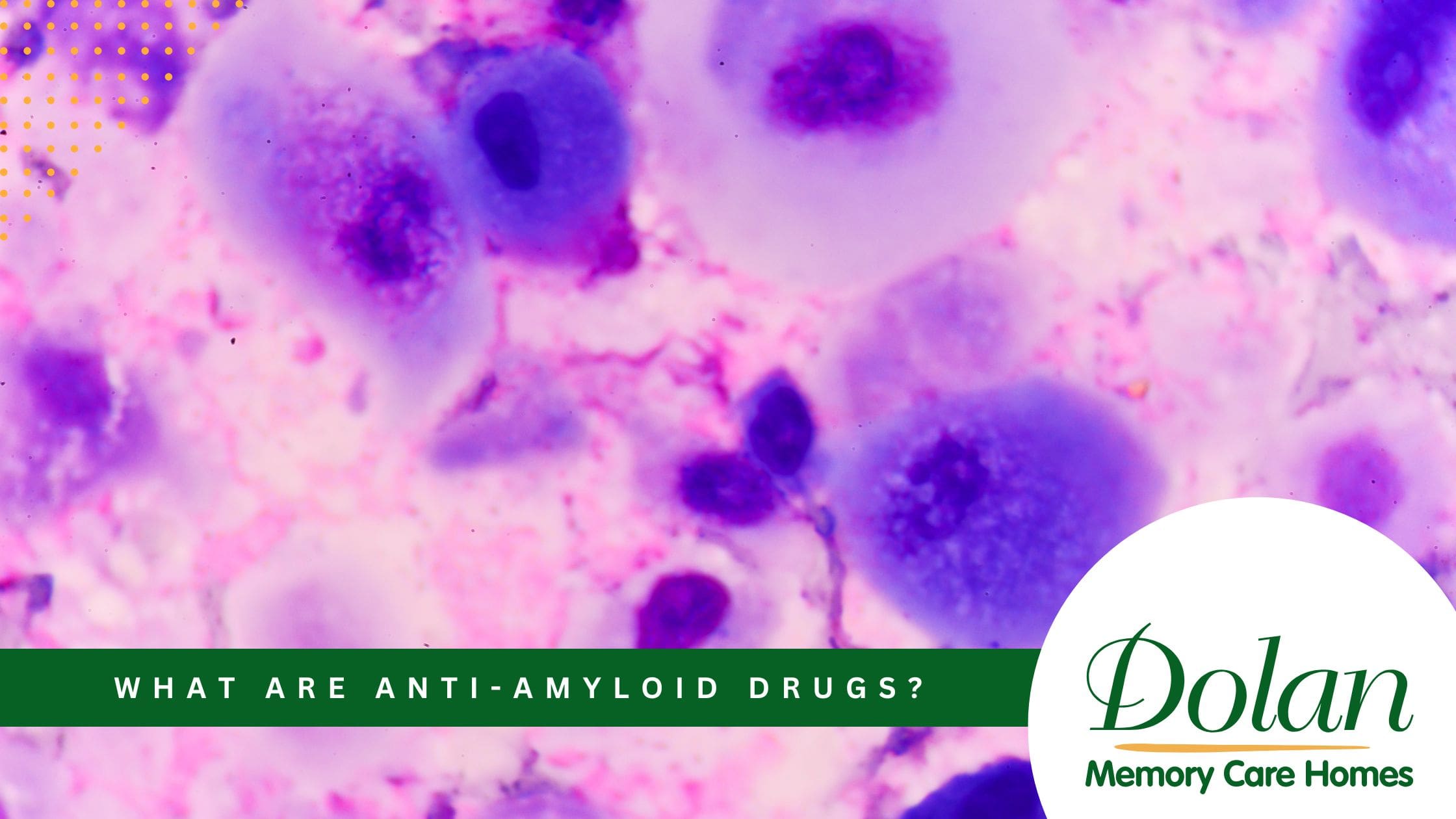If you’ve spent any time reading about Alzheimer’s disease research, you’ve probably come across the term “amyloid.” Amyloid is a major area of focus for many researchers searching for a cure to Alzheimer’s – anti-amyloid drugs in particular. What is amyloid, what are these drugs being studied, and what impact may they have on the future of Alzheimer’s research? Read on for insights into this promising area of Alzheimer’s research.
What is amyloid?
Amyloid is a protein in the brain. When it is regulated correctly, it can be useful for brain function. But in certain cases, it can clump together and form what are known as plaques. When it clumps together, amyloid becomes toxic to brain cells.
The plaques are a well-known sign of Alzheimer’s disease in the brain, and may even be one of the causes of Alzheimer’s. In fact, amyloid can start clumping into plaques as much as 20 years before someone experiences their first noticeable Alzheimer’s disease symptoms.
This has led to what is known as the amyloid hypothesis of Alzheimer’s. This hypothesis is that the first step on the road to dementia is the build-up of amyloid plaques in the brain, and that removing such plaques or blocking their formation can stop symptoms from arising.
What are anti-amyloid drugs and how do they work?
Because overproduction of amyloid and the existence of plaques are known to be associated with Alzheimer’s disease, anti-amyloid drugs have been a recent focus for many dementia researchers.
Anti-amyloid drugs work by targeting plaques to break them up, or by targeting amyloid before it has clumped to prevent the formation of plaques. There are a number of different anti-amyloid drugs being studied in different capacities, and even two that are currently approved by the FDA to treat Alzheimer’s disease (more on those below).
Alzheimer’s Treatment with anti-amyloid drugs: Donanemab and Lecanemab
Two different medicines for Alzheimer’s treatment have been approved by the FDA and are currently available: lecanemab (Leqembi) and donanemab (Kisunla). Both are given as an IV infusion and have been shown to slow down cognitive decline for those with mild Alzheimer’s disease. They work by recruiting the body’s immune system to fight plaques, using monoclonal antibodies. These treatments are currently authorized for use on those with mild dementia symptoms to help slow the progression of their disease.
Preventing Alzheimer’s with anti-amyloid drugs: WashU trial
Anti-amyloid drugs are also starting to be studied as a way to prevent Alzheimer’s disease from even developing. A recent study conducted at Washington University in St. Louis studied the impacts of anti-amyloid drugs on a population of adults who had a genetic mutation that all but guaranteed they would experience early-onset Alzheimer’s disease. The researchers found that the anti-amyloid drugs helped decrease the participants’ risk of developing Alzheimer’s disease by up to 50%. This has opened the door for future studies to look at anti-amyloid drugs not just as an Alzheimer’s treatment, but as a tool for dementia prevention.
Future Directions
What’s next for Alzheimer’s research about anti-amyloid drugs? Continued research to better understand the relationship between plaques and dementia, and more studies exploring how to use anti-amyloid drugs for Alzheimer’s prevention and treatment.
The researchers who conducted the Washington University study described above have begun studying even younger participants in hopes of figuring out how to prevent amyloid plaques from ever taking hold. They are working to see if preventing the accumulation of amyloid before it begins can prevent Alzheimer’s disease entirely.
So while there is still research to be conducted, there has been some great progress toward understanding this protein and its role in Alzheimer’s disease in recent years. Anti-amyloid drugs could be the future of Alzheimer’s disease treatment, and may even hold the key to finally finding a cure for Alzheimer’s.
Sources:





